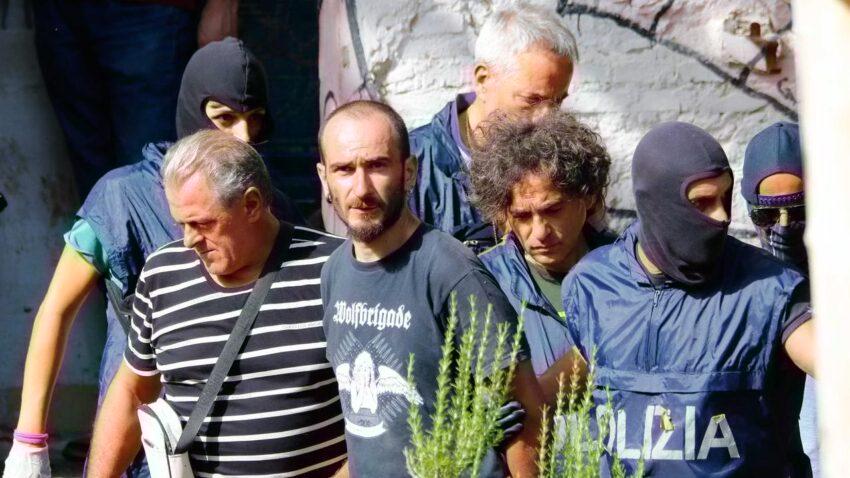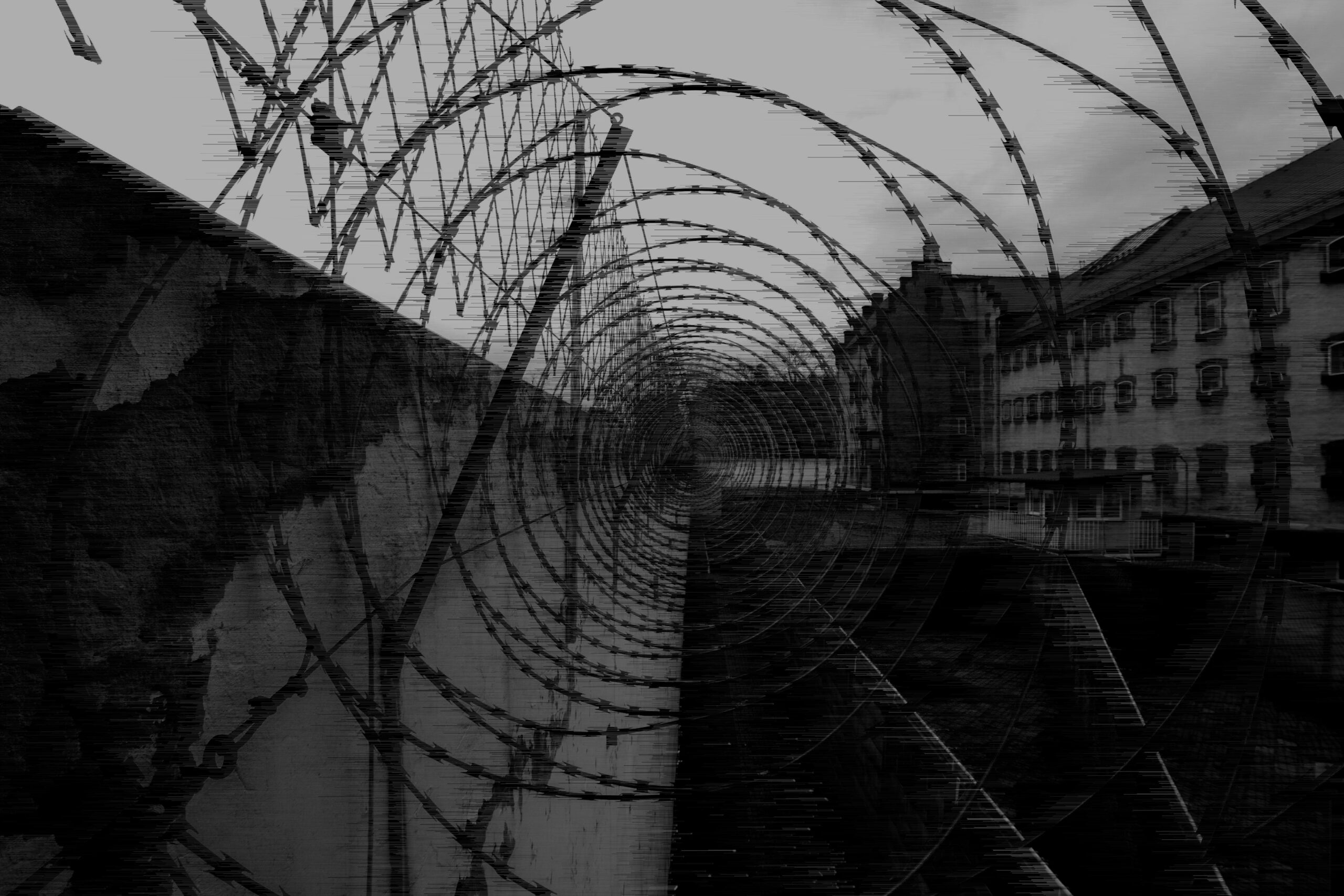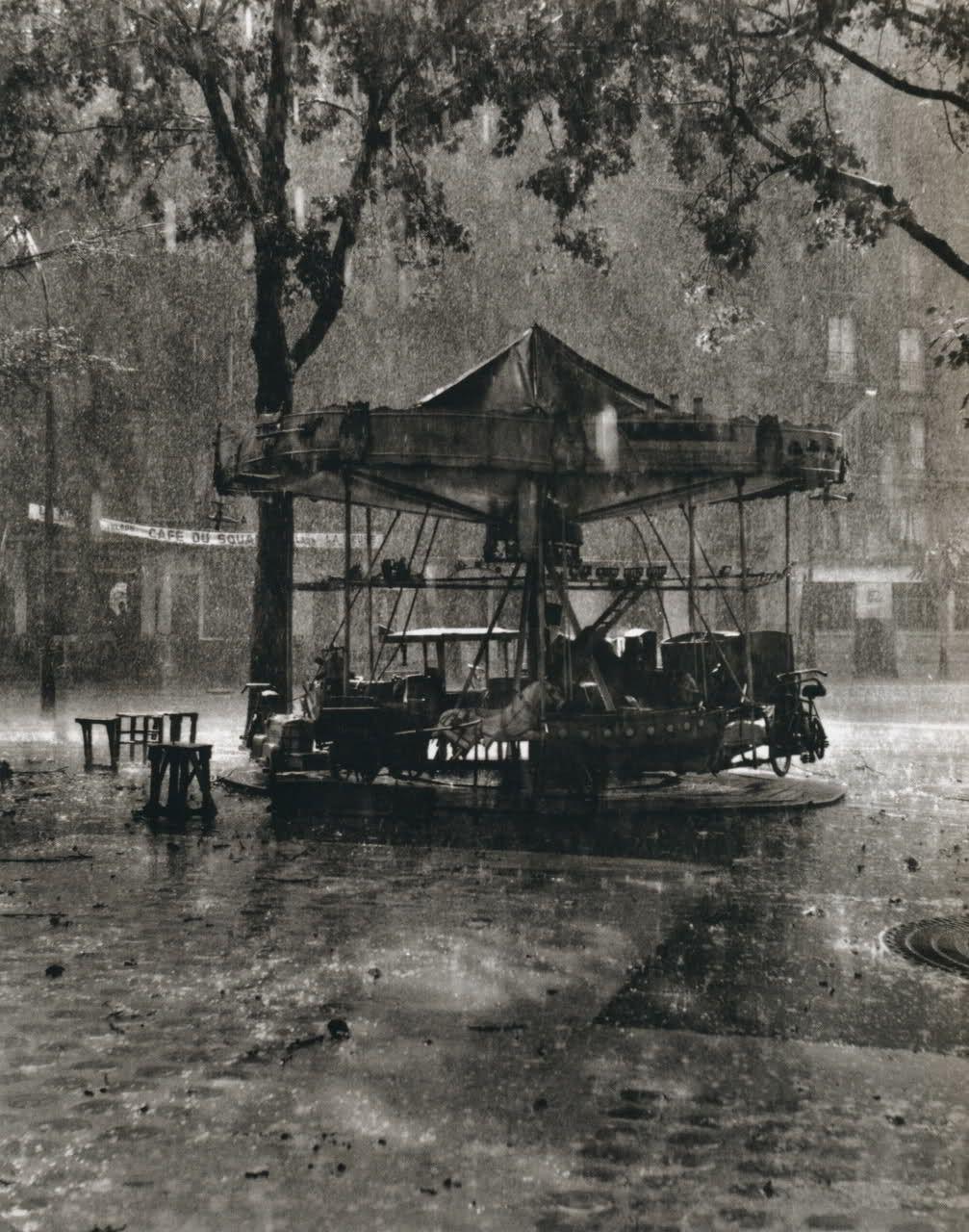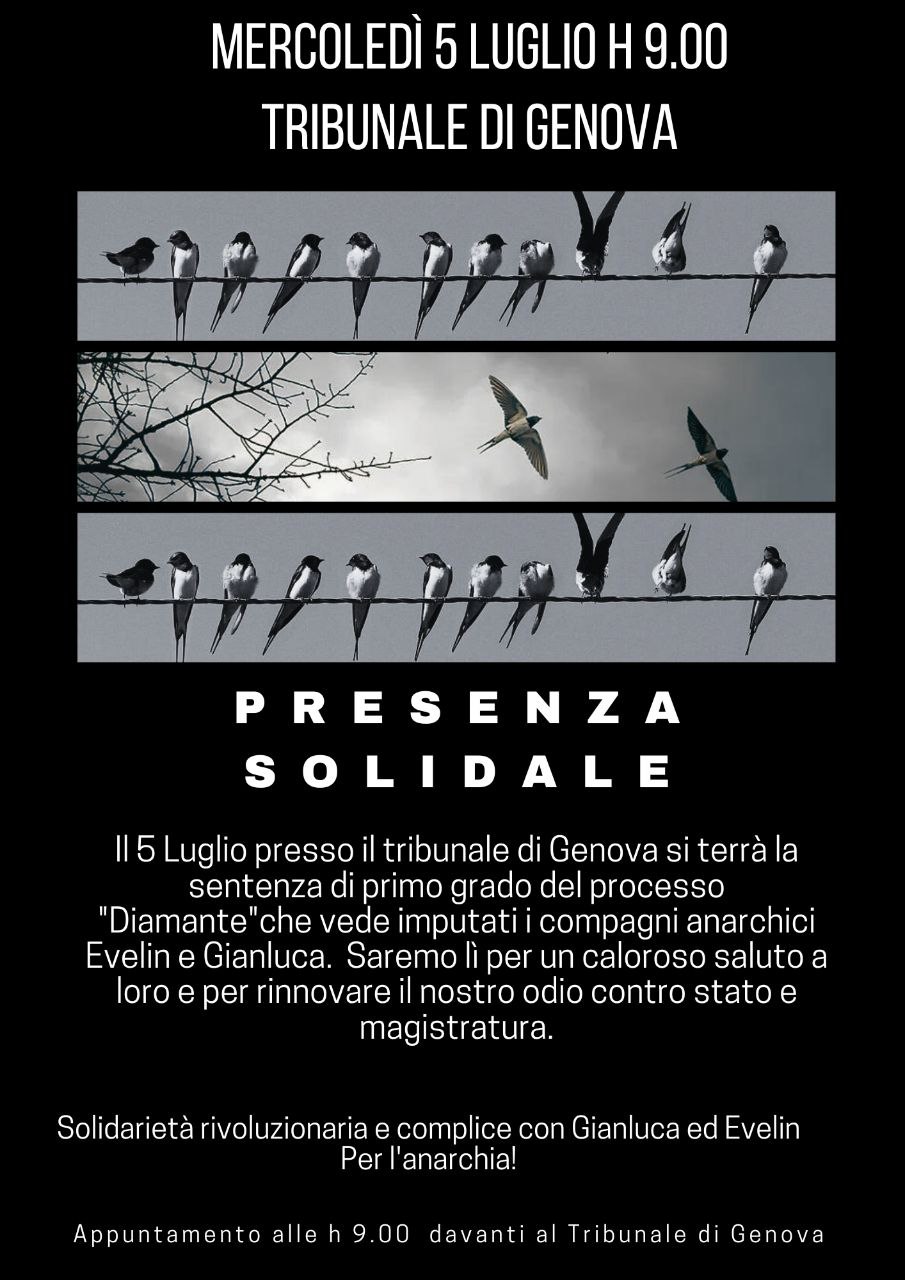
Anna’s scattered notes as a contribution to the October 11 assembly in Rome against 41bis for Alfredo
There is no shortage of analysis of the authoritarian turn currently underway, a real turn, albeit perceived in these parts as a low-intensity phenomenon, amid the cynicism of the powerful and the indifference of their subjects, sedated by the bread and circuses of the digital age.
The ‘Cospito case’ has been and continues to be one aspect of this shift: Alfredo has been held hostage, under 41bis, as a warning of this repressive crackdown, but it is not an extreme case, a distortion of the system. Rather, it is a tangible sign of the lowering of the threshold of punishability for political and social opposition and the consolidation of preventive repression strategies, from the tabula rasa on active components to the outright annihilation of speech and the silencing of critical thought.
Analyses of the repressive context and of whether or not to focus on the discourse (41bis – Alfredo in 41bis – anti-anarchist repression – repression simply) are not uniform, I believe, but hopefully converge on the need to oppose it, a need that is non-negotiable and cannot be misunderstood as a mere remnant of indignation at a legal distortion.
“Necessity” in the sense that we must maintain awareness, as a manifestation of vitality and planning, that the struggle is an existential dimension, not a ritual deadline on micro or macro issues. Whether it concerns specific and limited issues, such as a campaign to show solidarity with a single comrade or a situation under repressive attack, or macro issues such as the current state of widespread war, the genocide of a people, or the technological restructuring of forms of exploitation of man by man and of nature, we must first of all be aware that this is not a matter of external, superficial adherence, but of an intimate reason for struggle.
Having made this “light” introduction…
Although the authoritarian shift in Italy is being led by a handful of showmen controlled by the interests of global capitalism, such as the current holders of government positions, it is a fact that they are succeeding in carrying out a concerted effort to reduce the scope for protest, tightening prison and legislative conditions in the name of security and the specter of the democratic stability of institutions. Of course, this is not only the result of the new actors on the parliamentary stage; it was already well underway in the 1980s, with repressive strategies launched against the revolutionary component, from which much has been taken in rhetorical and propagandistic form, more indigestible than any reheated dish (if before the “bad teachers” were Toni Negri, now they are mathematicians such as, mind you, not Theodore Kaczynski but… Piergiorgio Odifreddi, to give a small example from recent days). And those who are not obtusely sedated by the institutional narrative, on either side, should grasp the meaning of certain continuities, where the only function is subservience to domination, to capital.
It is no coincidence that, amid this deluge of propaganda and television talk show rhetoric, the battle cries of any regime remain unchanged: in addition to the criminalization of public squares, anarchist press, grassroots trade unionists… even pacifist environmentalists, there is an obsessive search for enemies, political opponents, and terrorists to be destroyed.
If there is a lack of ready-to-use material, given that we live in relatively peaceful times in terms of social opposition, in addition to new or very new material (complete with the criminalization of non-conformist immigrants and keyboard warriors turned into dangerous Islamists), old or very old material is dusted off or kept warm, sought after by entire countries and continents or walled up alive for half a century. Counterbalancing the inconsistency of the initiatives of struggle and solidarity is the constancy and inevitability of the state moloch. It is quite significant that the long repressive memory is counterbalanced by a revolutionary amnesia (to use the definition of some comrades in reference to the German movement grappling with a repressive backlash that culminated in the arrest of Daniela Klette) of everything that has been a heritage of struggle and critical thinking.
Amnesia is not random but is one of the effects of a strategy of tabula rasa on the defeated enemy. “Carthago delenda est” [DN: ‘Carthage must be destroyed’ meaning ‘It must be destroyed’] and let’s throw salt on its ruins. Today’s tyrants prefer luxury resorts built on human bone meal and artificial intelligence that trains young Palestinians to be happy waiters or odalisques [DN: harem slave], but it is a model applied at both the micro and macroscopic levels. It is precisely this feeling of tabula rasa that leads to having to rebuild from scratch every time and in every place, struggling in increasingly restricted and claustrophobic communication bubbles, illusory comfort zones among like-minded people who comment and criticize the moves of others like spectators at the edge of the ring… rather than feeling part of a movement in struggle. Continue reading “Italy: Anna Beniamino – Contribution from Rebibbia prison ahead of the national assembly on October 11 in Rome, in solidarity with Alfredo Cospito, against 41 bis”






